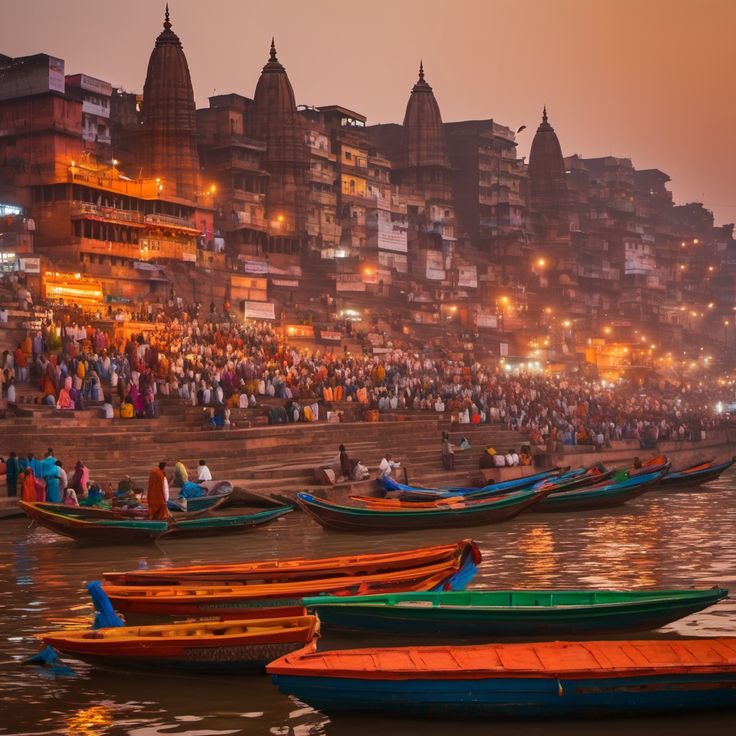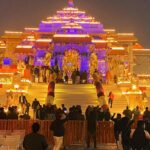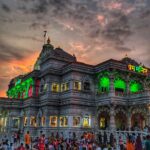Varanasi: The Timeless City of Spiritual Enlightenment
Introduction
Varanasi, often referred to as Kashi or the City of Lights, is one of the oldest continuously inhabited cities in the world, with a history that stretches back over 3,000 years. Situated on the banks of the sacred Ganges River, Varanasi is the heart of spirituality in India and a pivotal destination for millions of Hindus worldwide. With its temples, ghats, rituals, and cultural heritage, Varanasi offers a unique glimpse into the sacred and the everyday. This article explores the biography, history, daily life impacts, significance, and societal contributions of Varanasi, shedding light on what makes it such an important cultural and spiritual hub.
1. A Brief History
It has a rich and multifaceted history, with its roots tracing back to ancient times. Mentioned in the Rigveda, the city is considered one of the seven holiest places in Hinduism. Over the centuries, Varanasi has been a seat of learning, philosophy, and religious discourse. It was a major center of trade and culture, flourishing under various dynasties, including the Mauryas, Guptas, and Mughals.
The city’s connection with Lord Shiva, one of the principal deities of Hinduism, has earned it a revered status as the spiritual center of the Hindu world. It is believed that Lord Shiva himself resides in Varanasi, making it a place of eternal significance.
2. The Spiritual Significance
It holds immense spiritual importance, with the Ganges River serving as the soul of the city. The ghats that line the river are central to the city’s spiritual life, and they are used for a variety of religious rituals, including the famous Ganga Aarti. Thousands of people gather every evening at the Dashashwamedh Ghat to witness the mesmerizing prayer ceremony, where priests offer prayers to the Ganges.
It is believed that dying in Varanasi and being cremated along the banks of the Ganges liberates the soul from the cycle of rebirth, granting it moksha (liberation). For this reason, Varanasi is regarded as one of the holiest places for death and afterlife rituals, drawing people who wish to spend their final moments in this sacred city.
3. Daily Life
The daily life in Varanasi is a blend of the sacred and the mundane, where religious devotion intertwines seamlessly with the everyday activities of the people. The morning begins with devotees taking ritual baths in the Ganges, as they believe the holy water purifies both the body and the soul. The city’s narrow lanes are filled with the sounds of temple bells, chanting, and the call to prayer, creating an atmosphere of devotion.
At the ghats, rituals such as puja (worship) and arti (fire offerings) are carried out regularly. Street vendors sell religious items, flowers, incense, and sweets, while local markets are alive with activity, offering a mix of spiritual goods and everyday necessities.
4. Festivals and Observances
It’s celebrates a variety of religious festivals, each adding to the vibrant atmosphere of the city. Diwali, the festival of lights, is celebrated with immense enthusiasm, with temples, ghats, and homes illuminated by countless diyas (oil lamps). Mahashivaratri, the day dedicated to Lord Shiva, is another major celebration, where devotees fast and offer prayers throughout the night.
The Kartik Purnima festival, which falls in November, is a particularly significant occasion when thousands of pilgrims flock to the ghats to take a holy dip in the Ganges. This event marks the end of the sacred month of Kartik and is associated with the worship of Lord Vishnu.
5. Role in Society and Culture
It is also a major hub for Indian classical music and arts. It has produced many legendary musicians, poets, and scholars, making it a center of cultural enlightenment. The city is famous for its Banarasi sarees, intricate handcrafted textiles that reflect the rich cultural heritage of the region.
The city is home to several institutions of learning, including Benares Hindu University (BHU), one of India’s oldest and most prestigious educational institutions. Scholars from across the world come to Varanasi to study ancient texts, philosophy, and arts, further solidifying its place as a center for intellectual and spiritual growth.
6. Facts and FAQs
- Why is Varanasi considered the holiest city in India?
It is believed to be the spiritual seat of Lord Shiva and is regarded as one of the seven holiest places in Hinduism. It is also a place where many Hindus wish to die and be cremated to attain moksha (liberation from the cycle of rebirth). - What are the ghats of Varanasi?
The ghats are steps leading to the river where various religious activities take place. They are central to the city’s spiritual life, with some ghats dedicated to cremation, while others are used for bathing and prayer. - How is Varanasi connected to music and arts?
Varanasi is a cultural hub and a birthplace for many renowned classical musicians, poets, and artists. It is especially famous for its contributions to Hindustani classical music and the Banarasi style of weaving. - What is the significance of the Ganga Aarti?
The Ganga Aarti is a nightly ritual of offering prayers to the Ganges River. It is performed at the Dashashwamedh Ghat and involves a series of intricate fire offerings, singing, and chanting. The ceremony is an important spiritual event that attracts millions of devotees and tourists.
7. Influence on Modern Society
It influence extends beyond its religious significance. The city is a melting pot of ancient traditions and modernity, where the old and new coexist harmoniously. Varanasi continues to shape India’s cultural, social, and spiritual landscape, influencing everything from music and literature to philosophy and spirituality.
The city’s vibrant energy and timeless appeal continue to inspire artists, scholars, and spiritual seekers. Its ability to maintain its ancient charm while adapting to modern changes makes it a symbol of India’s enduring cultural and spiritual legacy.
Conclusion
It is a city that embodies the essence of spiritual enlightenment and cultural richness. Its historical significance, vibrant rituals, and deep connection to Hindu spirituality make it an unparalleled destination for both pilgrims and tourists. With its timeless beauty and profound influence on society, Varanasi remains one of the most important cities in India and the world, drawing millions of people seeking peace, spiritual awakening, and cultural immersion.











Spot on with this write-up, I really believe that this site needs
a lot mopre attention. I’ll probably be back again to read more, thanks for the advice!